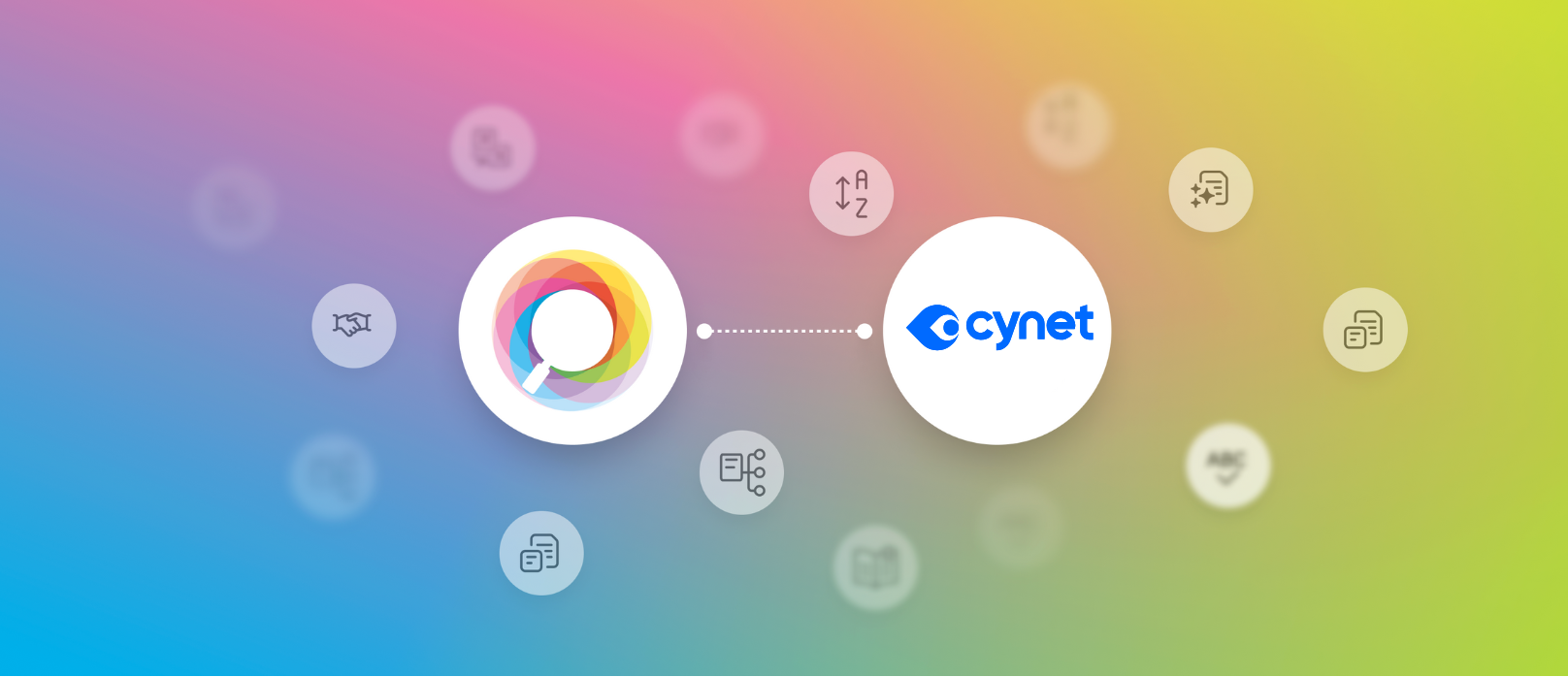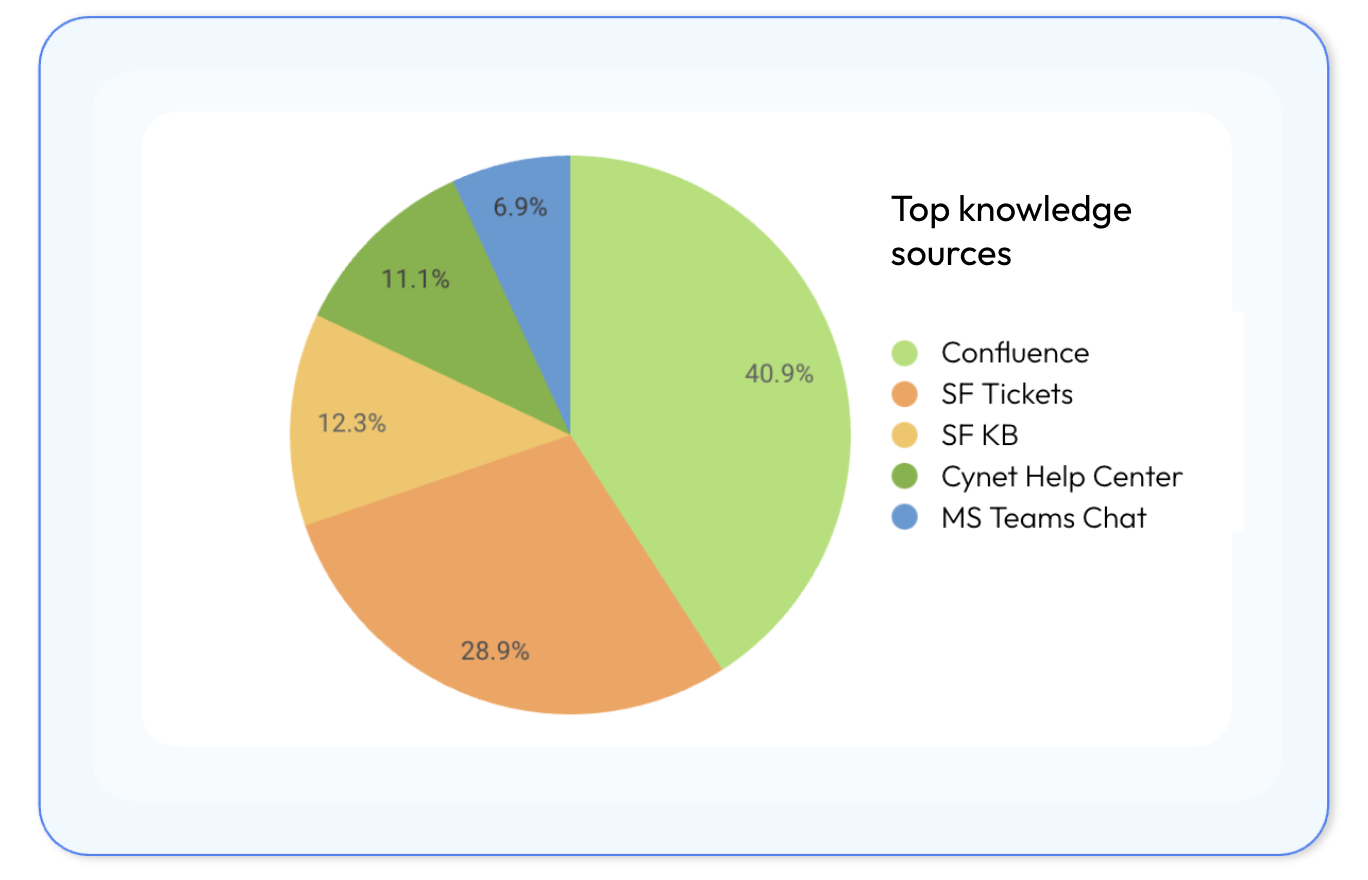
AI adoption feels like it should be easy—but the reality is far more complex. Despite widespread enthusiasm, 95% of enterprise AI pilots fail to deliver real impact, according to MIT research. For many companies, the challenge isn’t just implementing the technology—it’s turning it into meaningful, measurable ROI.
Cynet’s support team had a scaling challenge. Reps were relying heavily on senior engineers to answer repeat questions, often tagging them in Microsoft Teams chats and pulling them away from deeper work, interrupting their flow, and contributing to long resolution times. The result: slower resolutions, constant interruptions, and a support experience that was reactive by default.
To address these challenges, the team turned to an AI platform it had already adopted to help reps become more productive and efficient: Ask-AI. Support leadership saw an opportunity to go further: tailoring AI agents to support real workflows, enabling managers to review case quality, and embedding the platform more deeply into daily operations. The payoff came fast: fewer escalations, faster answers, and a 14-point lift in customer satisfaction.
Before the turnaround, Cynet’s support team was stuck in a familiar pattern. Internal knowledge was scattered across tools, and Salesforce’s native search—while helpful for finding case data—couldn’t reach the broader context stored in Confluence and other systems. When Adi Boxer joined as Director of Global Customer Support, he recognized the problem immediately: reps were wasting time switching between tools, struggling to find answers, and falling back to pinging senior engineers in Teams.
The result was a noisy, reactive support environment. Agents waited, experts were interrupted, and resolution times lagged. While Ask-AI had already been deployed, its full potential hadn’t yet been realized. The platform was set up to index customer content and provide generative AI responses and summaries. But it was not yet embedded into daily workflows in a way that truly deflected questions and empowered frontline agents. That was the turning point: not just fixing the company’s ability to search internally across its knowledge bases, but also to operationalize the insights that came out of it. Turning scattered knowledge into answers—at scale.
Before rallying the team, Adi spent time with Ask-AI himself. Coming from Salesforce’s native search, he was used to results limited to cases and knowledge articles. Ask-AI was different. For the first time, he could suddenly search across Salesforce, Confluence, and other sources—all in one place. It was his first clear view of how AI in customer support can transform workflows.
“First of all, ask Ask-AI. That’s the only guideline.”
— Adi Boxer, Director, Global Customer Support at Cynet
But he didn’t stop there. As he explored further, he began expanding how the team used the platform. He created custom AI agents trained on Cynet’s internal knowledge, enabling frontline support to resolve complex issues without escalation. He also introduced tools that gave managers visibility into case quality and customer conversations—allowing them to coach more effectively and spot gaps in knowledge sharing.
What started as a better way to search became a better way to operate. That clarity gave Adi the confidence to lead a broader rollout—not just championing a product, but solving the day-to-day problems everyone felt.

During this time, customer satisfaction (CSAT) scores climbed from 79 to 93—a 14-point lift reflecting the combined impact of workflow changes, new processes, and smarter use of technology. At the center of that transformation was Ask-AI, an AI customer support platform that gave reps faster, more reliable access to answers.
Resolution times also dropped, from a full week to just 4–5 days. Nearly half of all tickets—around 50% each month—were resolved at Tier 1 without escalation, reducing pressure on senior engineers. With Ask-AI handling knowledge retrieval, reps were less dependent on SMEs and could resolve issues more autonomously. That efficiency translated to a remarkable 25 hours saved each week—time the team reinvested in solving complex customer issues.
“CSAT improved from 79 to 93, and time to resolve went from one week to 4-5 days. It dramatically reduced the noise and the time it takes to get an answer.”
— Adi Boxer, Director, Global Customer Support at Cynet
Adi emphasizes that his goal was to make the existing team more effective and efficient—and in that he succeeded. The constant back-and-forth in Teams channels subsided, and the frustration of answering repetitive questions was replaced with a more streamlined workflow supported by AI powered customer support.
The platform also became a key step of their onboarding process, helping new reps get up to speed far more quickly by giving them a reliable knowledge partner from day one.
“The tool is overall very helpful. We have cases that are expanded over weeks, and the app saves me hours every week! Which is a lot! And I can use this time for other tasks.”
—Luciano Montefusco, Support Escalation Engineer at Cynet
For Cynet’s support team, the biggest shift wasn’t just faster resolutions, it was focus. With Ask-AI reducing the daily flood of questions to SMEs, reps could finally spend more time serving customers instead of chasing answers. Nearly half of all tickets—47%—were resolved at Tier 1 without escalation. Less noise, fewer interruptions, and a smoother workflow across the board. That clarity quickly spread beyond support. Other teams, including Customer Success and Cybersecurity Operations, have started to explore how they could use the platform for their own workflows.
“If I had to point to the number one benefit, it’s less noise. As a former support engineer, being able to focus on my actual job—not chasing people for answers—is amazing. I put my question into the tool, I get an answer, and I move on.”
— Adi Boxer, Director, Global Customer Support at Cynet
Even new hires felt the difference. With customized apps and instant access to institutional knowledge, onboarding became faster and less dependent on shadowing senior engineers.
Cynet’s story proves that AI doesn’t succeed on its own. It takes leadership, hands-on training, and a focus on real-world use cases. With those in place, Cynet turned an underused tool into an integral asset that made work quieter, faster, and smarter.